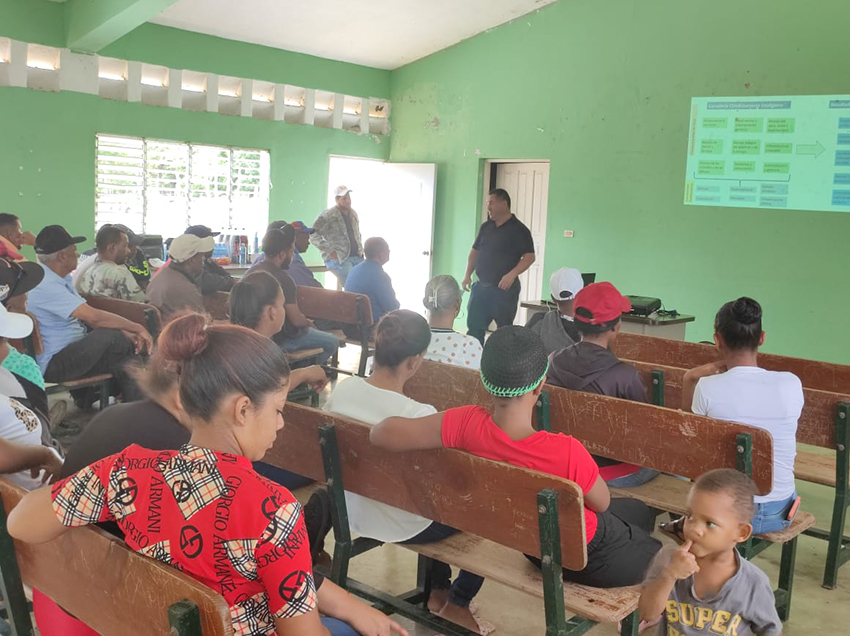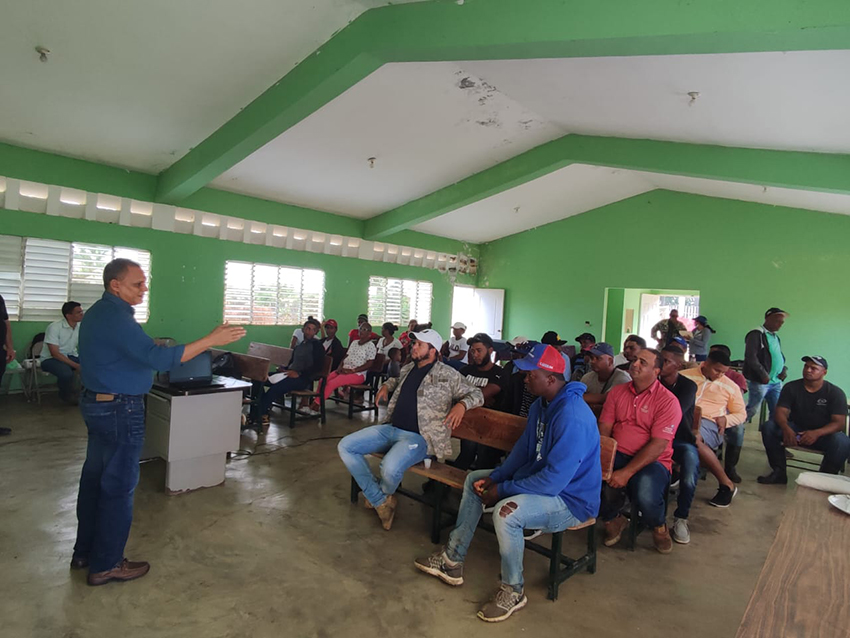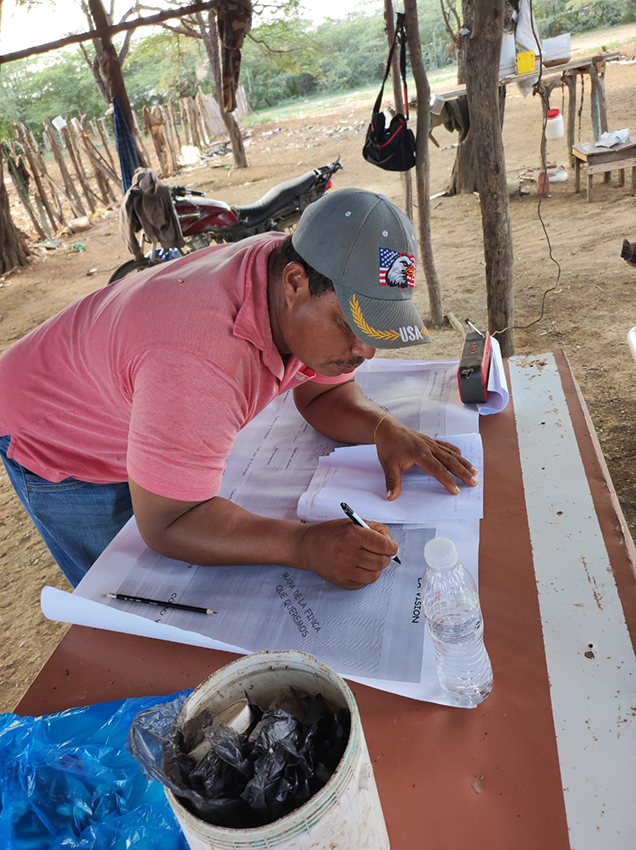Monte Cristi livestock communities learn how to develop their farm plan

- This tool will allow them to plan their farm activities, thus optimizing their time and economic resources to be more sustainable.
December 15, 2022. As part of the Mangroves for Development: Securing Livelihoods and Climate Resilience in the Caribbean project in Monte Cristi, Dominican Republic, 100 livestock producers from the communities of Recta de Sanita, Los Conucos and Nueva Judeare received training on how to develop a farm plan; a tool that will allow them to organize and plan their work to make their farm more productive and sustainable.
"The farm plan tool consists of a description of the activities to be carried out on the farm during a given period of time, to solve one or more constraints that arise for livestock families, and/or to take advantage of the opportunities offered by the farm or the environment to make the farm more productive and sustainable," explained Francisco Casasola, an expert from the Livestock and Environmental Management Unit of CATIE (Tropical Agricultural Research and Higher Education Center), who was part of the team of professionals who provided the training.
The training was organized by CATIE together with AgroFrontera, as part of the environmentally responsible livestock production component of the Mangroves for Development project, which is an initiative of the Dominican government, led by the Ministry of Environment and Natural Resources and the technical cooperation of the International Climate Initiative (IKI). This initiative focuses on the climate risks present in the highly vulnerable coastal-marine ecosystems and communities of Monte Cristi.
According to Casasola, the farm plan allows producers to know the resources (capital) they have on their farms and identify their limitations and opportunities to carry out actions in an orderly manner to improve the income of their families; in addition, they contribute to climate change adaptation and reduction of Greenhouse Gas (GHG) emissions.
"Making a farm plan is very useful because it allows us as a producer family to have the ideas written down and not just in our minds," said Santiago Jeréz, a producer who participated in the workshop.
After the training received, it is expected that the producer families will be able to implement their plans on their farms, thus optimizing their time and economic resources in order to make their farms more sustainable.


More information:
Karla Casasola
Knowledge management
Livestock and Environmental Management Unit
CATIE
Written by:
Karla Salazar Leiva
Communicator
Information Technology and Communication
CATIE



